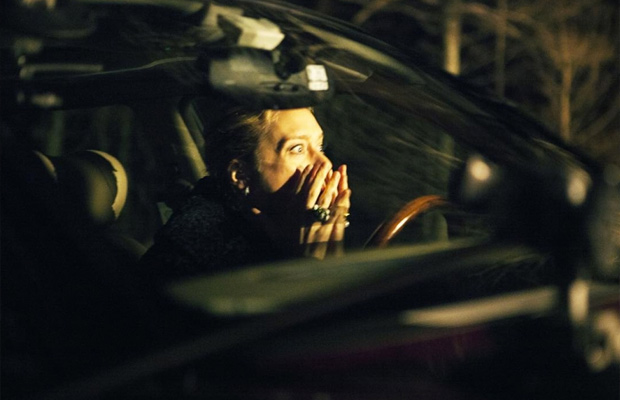As You “Like” It: Subkoff Finds the Sound and the Shrillness in Social Media
A wave of English language J-horror remakes in the early 2000s signified, amongst several items, Japan’s penchant for psychological horror utilizing its culture’s increasing obsession with technological instruments. As several advancements have changed the social media landscape significantly, genre cinema is still catching up with how to incorporate these realities into the fabric of horror. Instead, trends have insistently developed convoluted ways to keep technology at bay in thriller narratives, as evidenced by continual period remakes and prequels of previous material. But we’ve seen a growing shift in topical devices, such as this year’s other cyberbullying portrait, Unfriended or the 2013 Dutch film App.
While Alex Cox (Chloe Sevigny) waits in vain for her philandering husband (Balthazar Getty) to return home to their isolated estate in the middle of the wintry woods, her daughter (Bridget McGarry) is hosting a little slumber party. Other young girls converge on their isolated mansion, including two misfits, poor girl Sam (Sadie Seelert), driven by her mother (Natasha Lyonne, appearing in one brief sequence) and the emotionally troubled Cat (Haley Murphy), whose father (Timothy Hutton) isn’t quite sure how to deal with her outlandish behavior following the recent death of her mother. The other girls don’t seem to care for Cat, who was recently accused of cyberbullying at school. While Alex leaves the girls home alone, a continuous bout of emotionally abusive exchanges take place, leading to a night filled with grisly violence.
Subkoff scores a coup with indie darling Chloe Sevigny (no inside jokes about the director with whom her character shares a name) as a vapid socialite drowning the ruins of her marriage in gossipy snarls and lots of booze amidst the resplendence of her isolated façade decked out in hyper expressive pop art. The film’s obnoxious décor is reminiscent of another tale of privileged woe, Eli Roth’s Knock Knock, also a film featuring unstable young women intent on wreaking the ultimate undoing via social media (though in this instance on lecherous married men).
Subkoff’s screenplay suffers from similar misdeeds evident in Roth’s work as well, a decent premise derailed by subpar dialogue and an unforgivable degree of wooden acting. Even pointed dialogue can avoid seeming cheap or tawdry, but Subkoff seems to loathe these malicious teen girls even more than her audience eventually does, and it’s a relief to the senses when the killing spree finally begins. The exceptions here are notable adult cast members, such as Sevigny, who knows how to maneuver through the campy bits of dialogue. Interestingly, Timothy Hutton, who won an Oscar as an angsty teen in 1980’s Ordinary People, now plays the cold, bored, and accidentally malevolent parent of one.
Subkoff attempts to energize her single set locale by dipping frequently into the social media app where these girls post all their content, which seems like Candy Crush mixed with Instagram mixed with a jarring Las Vegas lotto machine. It becomes a tedious crutch, and a terribly aggravating one at that. If #Horror had somehow managed to key us in on these people as actual characters, perhaps some empathy would have enhanced our reaction to their predicaments, not unlike the brats portrayed in Sofia Coppola’s The Bling Ring (2013), for instance.
Obviously meant to convey the inherent desensitization social media has distilled in our daily interactions with one another, #Horror does have fleeting moments of succinct social commentary, but never enough to justify spending such an agonizing amount of time with such vacuous caricatures. However, when it’s not veering off into cartoon sound bites, DoP Learan Kahanov does manage to create a majestic, unexpected eeriness, particularly in the bleak, snowy exteriors outside the palatial glass house of the Cox’s.
★½/☆☆☆☆☆
